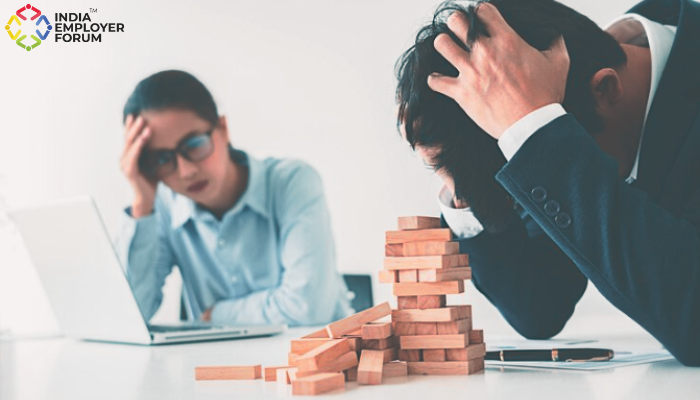Pandemic fatigue is tough because of its unrelenting nature. Adapting to the current scenario of delicately-balanced health circumstances was thought to be temporary. But the challenge of getting used to a new normal for seasoned workers across all categories means more than a slight aberration. They have to act responsibly day after day with no end in sight.
Impact on mental health
The constraints following the outbreak of the coronavirus pandemic nearly eleven months ago are not merely physical. They are isolating and disorienting to their mental health too. The most important resource of a business, the human resources, face unprecedented uncertainty. Business-model disruption closes in on the heels of economic chaos. The result is existential dread, which turns into pandemic fatigue syndrome.
Pandemic fatigue means feelings of demotivation to go on with one’s tasks. It stems from a general sense of unease about every major area of human life. Wellbeing is impacted and finding pleasure in daily activities becomes harder. For the workforce, the changes caused by the social unrest and new norms of interaction show up starkly in the workplace. Workstations are moved far apart or teams no longer meet at all. Instead, they work from home and only interact online. Virtual meetings and phone calls help to minimize the spread of the virus but remove the human touch. However, business sustenance depends on bringing back the enthusiasm to work and perform while following the directives of health and hygiene.
You might also be interested to read: Measuring The Benefits Of Employee Wellbeing Programs
How to beat pandemic fatigue
Pandemic fatigue itself is erratic. But there are some triggers to avoid and ways to keep it at a distance. These are things that working professionals and their managers can follow actively to battle the natural tendency of the human mind to give in to fear.
1.Limit intake of news: While keeping abreast of developments is required, an overdose of news can trigger panic and anxiety, or feed the feelings of pandemic fatigue. Hearing about the climbing number of cases, vaccination attempts, and new variants of the virus can make the people at the receiving end of the news feel there is no end to the tension. Instead, one should follow only important updates and then turn to more cheerful items of interest closer to home.
2. Go digital: Digital transformation is a suitable and logical step for the current working population. They adapt easily to it because of their bringing up. The current climate is best to hand-hold them through the requisite steps for digital adoption.
3. Choose types of entertainment: Other items of human interest, scientific discovery, and social change are part of the news. Making time to learn a bit about everything without fixating on the pandemic-related updates gives the minds of the working population a break from pandemic fatigue.
4. Keeping fit mentally and physically: Although meeting people at the home and work is not possible, connecting with them via video call software, or sharing a leisurely conversation over the phone can break the monotony. This can be coupled with yoga, pilates, or meditation at home where groups follow an instructor online. A bicycle ride or run along the driveway is safe if mask-wearing and hygiene protocols are followed. This takes the mind off the pandemic and its direct effects. Looking inward can contribute directly to self-care.
Reenergizing the workforce through pandemic fatigue requires being up close and personal – relating to the workforce in a humane and empathetic way. Not everyone has the same struggles. Business challenges get addressed as a by-product of helping people solve their struggles in their immediate environment. This is a long-term solution to recovery; and the most sustainable one.
You might also be interested to read:
References:
- Overcoming pandemic fatigue: How to reenergize organizations for the long run | McKinsey & Company | Aaron De Smet, Laura Tegelberg, Rob Theunissen, and Tiffany Vogel | Nov 25, 2020
- Has ‘pandemic-fatigue’ reached India? | TheHinduBusinessLine | Nov 12, 2020
Related Topics:




